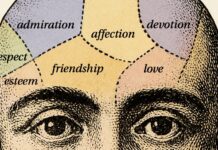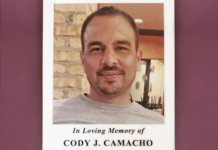How to be a Critical Psychologist Without Losing Your Soul: A Conversation With Zenobia...
On the Mad in America podcast, Zenobia Morrill, José Giovanni Luiggi-Hernández and Justin Karter join us to explore the need to raise awareness of psychological approaches that challenge mainstream perspectives.
“I Made it Through the Horrors of Psychiatric Drug Withdrawal” A Conversation with Comedian...
Dex Carrington, AKA Jørgen Kjønø, is a Norwegian-American stand-up comedian and actor. He joins us on the Mad In America podcast to talk about his experience with Lyrica and Zyprexa, including a five-and-a-half-year taper after 10 years on the drugs.
Not Even the Unborn Are Safe from Psychiatric Harm
Medical organizations and the media dismiss the experts and the large body of research telling of fetal harm from exposure to SSRIs during pregnancy.
On Love in America
After I nearly died during open-heart surgery, I realized that there is no room in this second life for anything but gratitude — and love.
Mad In South Asia
While conducting research in rural Northern India, Ayurdhi Dhar spoke to a woman whose mother had vivid visual hallucinations of Indian wedding processions. When...
The Mad in the World Network: A Global Voice for Change
Mad in Ireland is the newest Mad in America affiliate. The network of affiliate sites is becoming a global voice for change.
Veteran Suicide Prevention Legislation Introduced That Will Save Lives
The bill will require prescribers to obtain written informed consent including the risks of psychiatric drugs.
Exploding Myths About Schizophrenia: An Interview with Courtenay Harding
The Vermont Longitudinal Study, led by Courtenay Harding, belied conventional beliefs about schizophrenia by showing remarkably good outcomes for patients discharged in the 1950s and '60s.
Chemically Imbalanced: Joanna Moncrieff on the Making and Unmaking of the Serotonin Myth
Joanna Moncrieff joins Robert Whitaker to talk about her latest book, titled Chemically Imbalanced: The Making and Unmaking of the Serotonin Myth. They discuss the serotonin story and the fact that there is no good evidence that a serotonergic deficiency is a primary cause of depression.
“Dad, Something’s Not Right. I Need Help”: Richard Fee on the Dangers of Adderall
In appointments that last five to seven minutes, all doctors do is push drugs—psychiatric drugs, ADHD meds, everything.
Kids Are Not the Problem: An Interview With Gretchen LeFever Watson
In this interview, Brooke Siem, who is the author of a memoir on antidepressant withdrawal, May Cause Side Effects, interviews Gretchen LeFever Watson, PhD.
Gretchen...
When Narratives Clash: Unshrunk and The Cognitive Dissonance of the NY Times
For the mainstream media, reviewing Laura Delano's memoir "Unshrunk" is an exercise in cognitive dissonance.
Making Peer Counseling Radically Accessible
I imagined a world in which anyone can hit a button on their phone and be connected with a compassionate and empathetic listener, 24/7. So in 2019, I founded Peer Collective. Today, there are 30 peer counselors on the platform offering 30-minute counseling sessions for just $14.
Green Star Mother Demands Answers from VA Secretary
If the Veterans Administration is sincere in wanting to reduce veteran suicides, the first place to start is to collect information following these deaths to try to better understand the causes.
Becoming Stewards of Shadow: Beyond Great Men and Myths of Invention
Before the psyche was carved into parts with elegant diagrams and marketed methods, cultures walked with shadow.
Q&A: How Can We See ADHD From Another Angle, and What Can We Do...
We all want to help our kids or our students, and sometimes finding the right key to unlock a child’s gifts is a matter of time, patience, trial, and error.
Mad Sisters: An Interview With Susan Grundy
Susan Grundy on her lifelong caregiving journey for an older sister diagnosed with schizophrenia at the age of 13.
Do Antidepressants Work? A People’s Review of the Evidence
After a meta-analysis of RCTs of antidepressants was published in Lancet, psychiatry stated that it proved that "antidepressants" work. However, effectiveness studies of real-world patients reveal the opposite: the medications increase the likelihood that patients will become chronically depressed, and disabled by the disorder.
Q&A: My Child is Being Bullied
I have a young son who is being verbally bullied by his peers. He is a sensitive child— thin, wears glasses, athletic and intelligent. I suspect the problem may be related to anti-Semitism. I feel like telling him that he needs to fight the bullies with his fists. His mother advises him to ignore the bullies and to concentrate on his studies. What would you advise?
The Editorial Demise of Psychotherapy and Psychosomatics Is Bad News For Us All
Karger’s decision to replace the editorial leadership without consultation is extraordinary, abruptly ending decades of success and accumulated expertise.
Psychotherapy and Psychosomatics: End of an Era for Independent Journals? An Interview With Giovanni...
Giovanni Fava joins us to discuss the uncertain future of the journal 'Psychotherapy and Psychosomatics' which he edited for thirty years and which has been essential to our understanding of the impact of psychiatric treatments.
Wendy Dolin – Making Akathisia a Household Word
An interview with Wendy Dolin who talks about the work of MISSD, the Medication-Induced Suicide Prevention and Education Foundation in Memory of Stewart Dolin, a non-profit founded to raise awareness of the tragic consequences of drug-induced akathisia.
An Atheist’s Prayer by Morgan Stewart
Psychiatry is an atheist’s prayer, absolving the faithful of human desire
It is miracle cures, sinners who have lost their way, and a holy book...
Suicide in the Age of Prozac
During the past twenty years, the American Foundation for Suicide Prevention and American psychiatry have adopted a "medicalized" approach to preventing suicide, claiming that antidepressants are protective against suicide. Yet, the suicide rate in the United States has increased 30% since 2000, a time of rising usage of antidepressants. A review of studies of the effects of mental health treatment and antidepressants on suicide reveals why this medicalized approach has not only failed, but pushed suicide rates higher.
Kermit Cole: Dialogical Therapy and Quantum Theory Walk Into a Bar…
On the podcast this week we are joined by Kermit Cole who shares his thoughts on how humor can help in creating a shared experience that is helpful to the healing process. Kermit, in his experiences of being with people in psychotic states, has seen humor as a moment when a connection can be made. In many ways, this project is bringing Kermit back full circle to his work as a film director, early in his professional career.

































